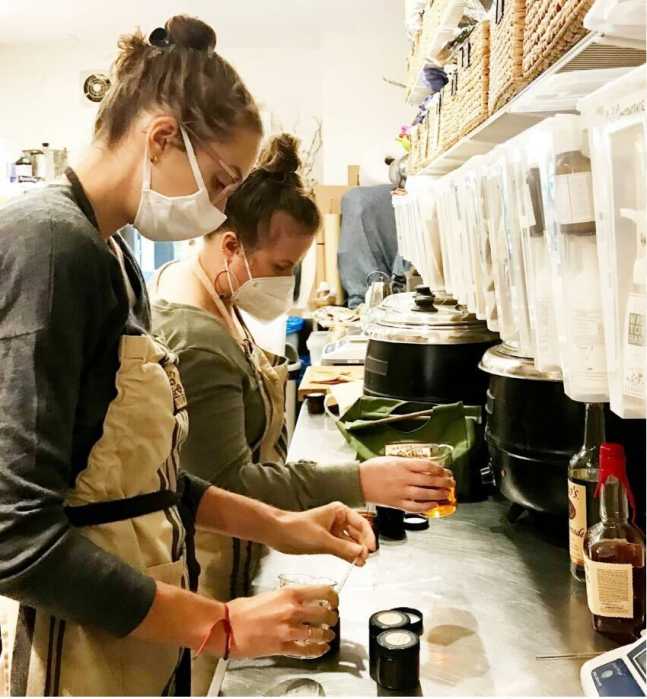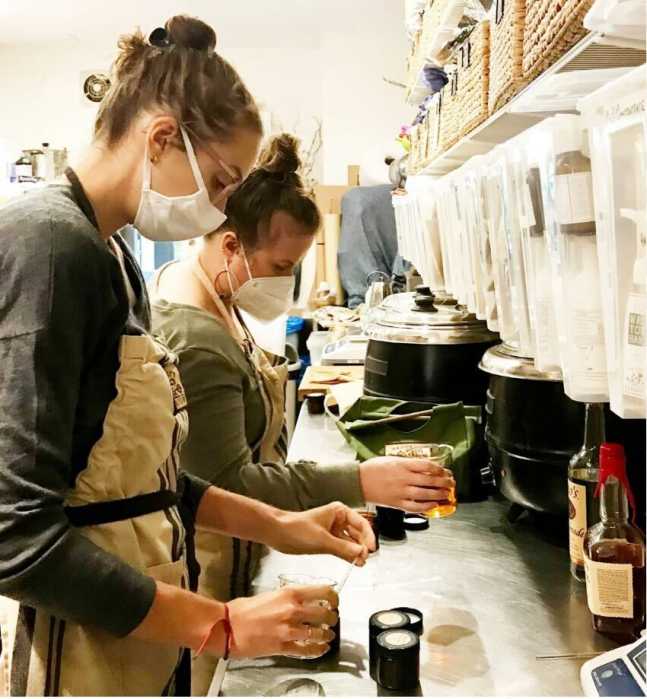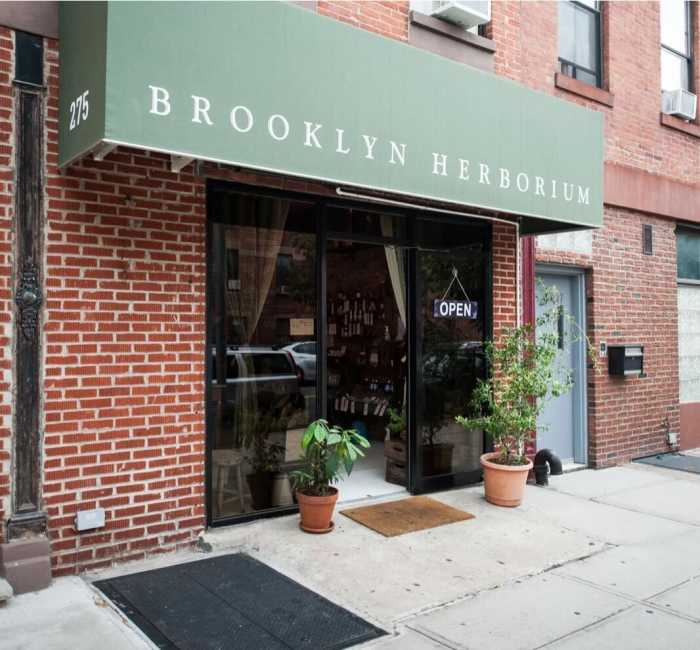Listeners:
Top listeners:
-
play_arrow
RadioJLR Just Press Play
Shea nut embargo triggers supply shocks for Brooklyn small businesses

For Imani-Ligon Chambers, a 21-year-old Black American college student from Manhattan, managing her frizzy, curly hair has always been a challenge — made harder by her nut allergies, which rule out common hair oils like coconut and almond. That’s why she relies on products made with shea butter, a longtime staple in Black hair care.
“Hair products containing shea butter are the only ray of hope for my frizzy curly hair,” Chambers said.
From lip balms to hand creams and candles, shea butter shows up across cosmetic and hair care labels. But exports of shea nuts have been tightening since the beginning of the year, with Nigeria becoming the latest country to announce a temporary six-month embargo in August 2025.
The shea nut comes from an indigenous African plant grown naturally across the “Shea Belt,” a region that stretches from Senegal to Sudan. Countries known for high-quality organic shea butter production include Nigeria, Mali, Ghana, Ivory Coast, Niger, Togo, Benin, Burkina Faso and Uganda. Six of them — excluding Niger, Benin and Uganda — have either imposed or proposed shea nut export bans by 2026.
“I’ve been using shea butter for hair since I had my big chop in sixth grade,” Chambers said. She and her mother discovered shea butter years ago, and now her mother also blends it with mango butter as a moisturizer for her grandfather’s eczema.
“Shea butter is also expensive. The last time I bought it was almost a year ago, and it came in a small tub that cost around $13 to $20,” Chambers said. “There is a place uptown on 125th Street that sells it, and a few other places in New York has it in store. I know a lot of Black women use shea butter hair products to style their hair, and I’m upset that these political and economic tensions will affect not just me but the people I care about and love.”
Consumers like Chambers, with limited alternatives, will likely feel the sharpest impact of the embargo as demand for shea remains inelastic. Analysts warn that the burden may fall disproportionately on communities of color in the U.S.
Goods are exported to the global market when their world price is higher than domestic prices. Banning the export of shea nuts would push domestic prices down and create a supply shock for countries that import the raw material. With limited substitutes and low production costs, the inelastic demand for shea nuts is likely to drive up global prices.

“While domestic purchasers in West African countries stand to benefit the most from this embargo, local producers will suffer a big loss as they could’ve sold it at a much higher price on the international market,” said Dr. Omar Robles, a Harvard-trained economist who teaches business at Marymount Manhattan College. “Although this will lead to more jobs and opportunities from manufacturing the products of shea nuts domestically, it will be inefficient as they are forgoing the higher revenue that would’ve come in from exporting the product in the first place.”
While wavering U.S. tariffs are already taking a huge toll on the market, small businesses are the ones most often neglected in the process. Brooklyn Herborium is an organic skincare line and apothecary located on Columbia Street and Prospect Avenue in Brooklyn.
Founded in 2011 by herbalists Molly Watman and Emma Graves, the business was born from their desire to craft a holistic space where herbs could thrive and benefit future generations. What began as hormone-induced paranoia following motherhood led Watman to research complex label terminologies and ultimately create the apothecary with Graves.
Over the years, Brooklyn Herborium has grown to establish partners in Hong Kong and China, importing its products.
“We are not alone in this boat, but it’s challenging — especially for small businesses — to change trusted relationships built with people we’ve worked with for many years that are hard to replace,” Watman told Brooklyn Paper.

Brooklyn Herborium uses shea nuts from Butyrospermum parkii trees in Ghana for products like its bumble lip balm. Ghana has not yet imposed an export ban but announced in July 2025 that it will phase one in by 2026. For over a decade, Watman and Graves have sourced shea nuts from a women’s collective in northern Ghana, paying $6 to $8 per pound. Now, the partners are in talks to navigate the changing trade climate.
Both the trading partners are in communication at the moment, trying to figure out a way to work together amidst the political tensions and economic barriers.
“There are other countries growing shea nuts where the climate is hospitable. But the real question is, are they pesticide- and chemical-free, and are they ethically farmed? We’re in a discovery process to find alternative sources of shea nuts without compromising our values,” Watman said.
The U.S. imposed a 30% tariff on South African imports last month, and officials from South Africa recently traveled to Washington for further talks.
As trade partners negotiate tariff rates, entrepreneurs like Watman are bracing for an uncertain future in global trade.
“I don’t want to raise our prices; I want our products to be affordable,” Watman said. “But I know my cost of production has gone up. All my suppliers are facing issues, and our orders from abroad have plunged. I have to pay my employees, and these tariffs are impacting our ability to access affordable, good-quality ingredients.”
“We simply don’t have the climate or the environment to grow shea trees in the U.S.,” Dr. Robles added. “As small businesses are going to be left negotiating a much smaller fraction of the total supply that is being imported to the country compared to the corporates, switching to alternatives will be the best option for them in light of the tariffs.”
Written by: Adm
Similar posts
Jamaican graphologist delves into ‘Caribbean Fraud’
Who would imagine an individual capable of making character inferences by interpreting penmanship? A specialist in graphology is able to deduce behavior from each upward stroke and downward slant, the dots, darts, hyphens, question marks, and exclamations in handwriting. At least, so says Beverley East, an expert in handwriting analysis, […]
© 2025. All Rights Reserved by Radio-JLR

